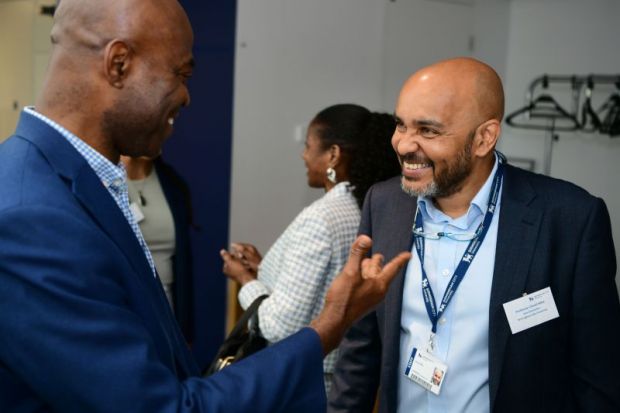A comprehensive result in the UK general election would allow universities to take a longer-term approach to racial inequalities and wider sector challenges, a meeting of black leaders has heard.
Vivienne Stern, chief executive of Universities UK, told delegates at the first gathering of the Black Leaders in Higher Education network that it was “clear” that a racial “deficit” had to be addressed within higher education, and greater collaboration was needed to tackle the sector-wide inequalities.
But she noted that if election forecasts proved correct in predicting a significant Labour majority, it would allow the incoming government to think about more “long-term” policy ambitions.
“It’s an unusual opportunity in politics to be able to think reasonably long term,” she said. “It will create opportunity, and it should create a prompt to us as a sector to ask: what do we want to change about our university system over the course of perhaps the next one or two parliaments?”
She added: “We have to think about what we want the government to do over the next decade, but [also] what we ourselves see as the issues we want to address: the things that are not right, the things we want to be different, the things we can see that the university sector can contribute to society or what we can do better.”
The meeting, held at Birmingham City University, was the first in-person event organised by the new advocacy group, which brings together black higher education professionals.
While the number of black academics working in the UK sector has increased in recent years, they remain severely under-represented at the highest levels of research and administration.
Other speakers at the Birmingham City event included Charles Egbu, vice-chancellor of Leeds Trinity University, and Robert Mokaya, provost and deputy vice-chancellor of the University of Sheffield.
David Mba, vice-chancellor of Birmingham City and chair of the group, told Times Higher Education that it creates an opportunity to act on the “lived experiences” of racial inequality within higher education and to advocate for change throughout the sector.
He said the incoming government must focus on addressing the racial pay gap and ensure that racial inequalities are central to conversations about inequality, and that the university sector needs to work more broadly on improving access for BAME talent into university pipelines.
“Rachel Reeves [Labour’s shadow chancellor] has spoken about the gender pay gap, and how as chancellor she wants to see that gone. But what about the ethnicity pay gap?” he said.
“But from my point of view, it’s about empowerment, and it goes back to the levelling-up agenda. The new education secretary, whoever that is, needs to think about social mobility in the broader sense, and how we support those from lower socio-economic groups. As the data shows, people suffer from being a different race.”




